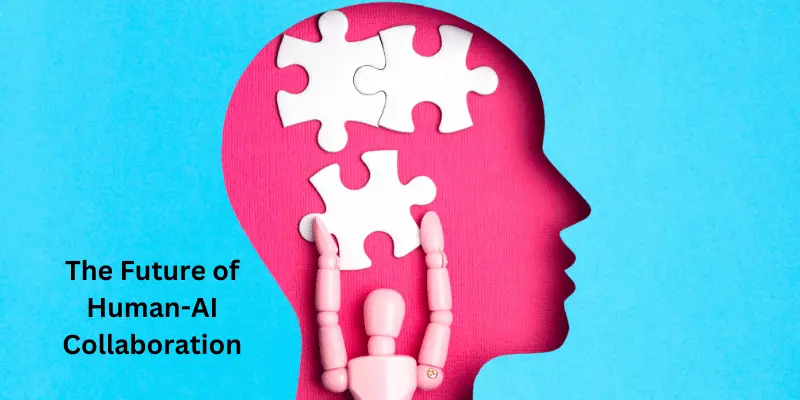10 Major ChatGPT Problems in 2025
Published: February 15, 2025
Let’s discover 10 Major Chatgpt problems in 2025. ChatGPT has become a revolutionary tool in the world of artificial intelligence, offering users an easy way to communicate with a machine that understands and responds in a human-like manner.
It is being used for a wide range of purposes, from answering questions to generating creative content. However, like any technology, ChatGPT is not without its issues.
As now we are in 2025, there are still some significant challenges that need to be addressed to improve its usability and reliability.
10 Major ChatGPT Problems We May Face in 2025

Here are 10 chatgpt problems that we may face in 2025:
Lack of Contextual Understanding
One of the most persistent issues ChatGPT faces is its inability to maintain deep context across longer conversations.
The model tends to forget details or shifts in the conversation’s direction, which makes it hard to carry on fluid, coherent discussions over an extended period.
For example, if you have a conversation about a specific technical topic and return to the same conversation after a few messages, ChatGPT might fail to recall the exact context or the nuances discussed earlier.
This lack of memory can make it feel like you’re starting from scratch each time, which reduces the overall utility for long-term, ongoing interactions.
Limited Knowledge Base
ChatGPT’s knowledge base, though vast, is still limited to the data available at the time of its last update.
It can’t pull in real-time information or respond to current events, which makes it less effective for people looking for up-to-the-minute details or analysis on ongoing issues.
As of 2025, many users are frustrated by this limitation when they ask for news, stock market updates, or details on recently released research.
While ChatGPT can be very accurate with historical or general information, it struggles with recent data, making it less reliable for time-sensitive queries.
Misinterpretation of Complex Queries
ChatGPT’s ability to understand complex queries is still underdeveloped.
Despite the model’s advancements, it can misinterpret intricate or layered questions, often oversimplifying them.
This results in answers that miss the mark or don’t fully address the user’s request.
For instance, a question that requires nuanced understanding—such as exploring a controversial social issue or making predictions based on complex data—might be met with an overly broad or generic response.
This lack of depth is particularly problematic when users are seeking specific advice or analysis.
Bias in Responses
AI models, including ChatGPT, are trained on large datasets that may contain biased or skewed information.
While developers have made strides to reduce this bias, it’s still prevalent in many responses, especially when discussing sensitive or controversial topics.
For example, ChatGPT might generate answers that are unintentionally gendered, racially insensitive, or culturally biased, based on the historical data it has learned from.
This can be problematic, especially in industries like healthcare or education, where fairness and neutrality are paramount.
Overuse of Formal Language
ChatGPT has been designed to prioritize clarity and professionalism, but in doing so, it often uses overly formal language.
For casual conversations, this can feel robotic or distant, and it fails to create the warm, engaging experience that many users expect.
For instance, in informal settings, like casual chats or when users ask for creative content, the AI’s formal tone can make it less relatable or approachable.
Finding the right balance between casual and formal tones remains a key challenge for the platform.
Inability to Understand Emotions
ChatGPT, despite its impressive language capabilities, lacks genuine emotional intelligence.
While it can generate responses that mimic empathy or excitement, it doesn’t truly understand human emotions.
This is particularly noticeable when users seek emotional support or ask for advice during challenging times.
For instance, if a user expresses sadness or frustration, ChatGPT might provide generic comforting phrases, but it can’t offer the nuanced, empathetic support that a human would.
This emotional gap is something AI still struggles with, making it less effective for tasks requiring emotional depth.
Error-Prone Responses
Though ChatGPT is designed to be highly accurate, it still has a tendency to generate incorrect or misleading information.
Users may sometimes find that the AI provides answers that are factually wrong or outdated. This is especially problematic in fields like healthcare, law, or finance, where accuracy is crucial.
An example of this could be medical advice. While ChatGPT may offer helpful general information, it could fail to provide the most up-to-date or comprehensive insights.
In some cases, users may rely on this incorrect information, leading to potentially harmful decisions.
Data Privacy Concerns
As AI systems become more integrated into daily life, data privacy continues to be a pressing concern.
Users often worry about what happens to their data once it’s fed into ChatGPT.
While OpenAI has taken steps to ensure user privacy, transparency around data handling practices is still lacking in many instances.
In 2025, with the growing number of personal devices and apps linked to AI, more users are likely to search for detailed information about how their data is used.
Even if it’s stored, and if it’s shared with third parties. Users may also demand more control over their data, including the ability to delete any personal information the AI has collected.
Inconsistent Creativity
While ChatGPT excels at generating creative content like stories, poems, and brainstorming ideas, the quality of this content can be inconsistent.
Sometimes the responses are generic, predictable, or lack the innovation that a human creator could bring to the table.
This inconsistency becomes especially noticeable.
When users need high-level creative work, such as developing unique marketing strategies, crafting compelling narratives, or producing original artistic content.
ChatGPT might produce ideas, but they often lack the originality or flair that distinguishes truly creative work.
Dependency on Clear Instructions
ChatGPT’s performance relies heavily on the quality of the instructions it receives.
If users are vague or imprecise in their queries, the AI may generate responses that don’t meet expectations.
This makes ChatGPT difficult to use for those who are unfamiliar with how to craft effective prompts.
For example, if you ask a broad question like “Tell me about history,” the response may be so generalized that it’s not helpful.
Users need to understand how to be specific with their requests to get the most out of ChatGPT.
The Future of Human-AI Collaboration – The Missing Piece

One unique and forward-thinking problem ChatGPT might face in 2025 is the challenge of human-AI collaboration.
As AI becomes more integrated into workplaces and daily life, the future will demand that users work alongside AI in ways.
This is complement human strengths rather than replace them. ChatGPT will need to evolve from just being a tool to a collaborative partner.
Imagine using ChatGPT not just for answering questions, but as a co-worker or collaborator who can adapt to your needs in real-time—understanding your preferences, style, and workflow.
This will require deeper integration and a more intuitive, adaptive AI that truly augments human capability without replacing it.
FAQs
ChatGPT doesn’t have long-term memory and can only retain context within a single session. Once a new chat starts, previous conversations are forgotten, making it difficult to have continuous, context-aware discussions.
No, ChatGPT’s knowledge is limited to the data available at the time of its last update. It cannot browse the internet or provide real-time updates, which makes it unreliable for breaking news or recent events.
ChatGPT generates responses based on probabilities and patterns from its training data. It doesn’t fact-check or verify information in real-time, which can lead to errors or outdated responses.
Yes, like any AI trained on human-generated data, ChatGPT can reflect biases present in its dataset. While efforts have been made to reduce bias, it still occasionally provides skewed or culturally insensitive answers.
ChatGPT tends to prioritize clarity and professionalism, often defaulting to formal language. While it can adapt to casual tones, it doesn’t always match the natural flow of human conversation.
Not really. While it can generate empathetic-sounding responses, it doesn’t truly understand emotions. It lacks genuine emotional intelligence, which makes it unreliable for deep emotional support.
There are ongoing concerns about data privacy. While OpenAI states that user conversations are not stored permanently, transparency around data usage and security measures remains a concern for many users.
ChatGPT sometimes oversimplifies complex queries because it processes each question as a standalone prompt rather than a deeply connected discussion. It lacks the ability to think critically like a human.
Not entirely. While ChatGPT can generate creative content, it often lacks originality, depth, and emotional nuance compared to human creators. It works best as a tool for brainstorming rather than full content creation.
Possibly! The next step for ChatGPT and similar AI models is to integrate memory, personalization, and real-time data access. Future updates may turn ChatGPT into a more intuitive and collaborative AI assistant.
Conclusion
While ChatGPT has undoubtedly transformed the way we interact with AI, the road ahead in 2025 is filled with challenges.
From contextual understanding and bias issues to emotional limitations and data privacy concerns, there’s much room for improvement.
However, as we look to the future, the evolution of AI will likely address many of these problems, creating an AI that works seamlessly with humans in collaborative environments.
It brings us one step closer to a truly integrated and user-friendly experience.
Bonus Info Points About ChatGPT in 2025
- AI Hallucinations Are Still a Problem: Even in 2025, ChatGPT sometimes generates “hallucinations”—false or misleading information that sounds highly convincing. This remains a major challenge for AI reliability, especially in critical fields like healthcare and finance.
- AI Can Struggle with Code Accuracy: While ChatGPT is widely used for coding assistance, it still makes syntax errors and logic mistakes. Developers often need to double-check AI-generated code, as it may not always follow the best practices for efficiency and security.
- ChatGPT Still Can’t Think Like Humans: Despite being highly advanced, ChatGPT doesn’t actually “think” or “reason” like a human. It predicts words based on patterns, meaning it lacks genuine understanding, common sense, or real-world experience.
- Some Countries Have AI Regulations in Place: Governments worldwide are introducing AI regulations to control ChatGPT’s use in sensitive areas like law, education, and finance. Some regions even require AI-generated content to be labeled for transparency.
- Personalized AI Assistants Are the Future: The biggest AI trend in 2025 is personalized AI models that remember user preferences and adapt to individual needs. Unlike ChatGPT’s current version, these future models will offer tailored recommendations, making AI interactions more efficient and human-like.

- Be Respectful
- Stay Relevant
- Stay Positive
- True Feedback
- Encourage Discussion
- Avoid Spamming
- No Fake News
- Don't Copy-Paste
- No Personal Attacks



- Be Respectful
- Stay Relevant
- Stay Positive
- True Feedback
- Encourage Discussion
- Avoid Spamming
- No Fake News
- Don't Copy-Paste
- No Personal Attacks





